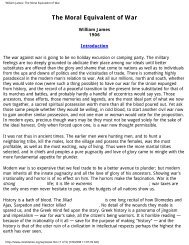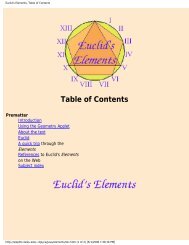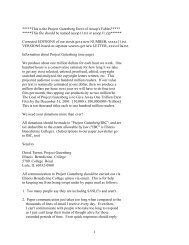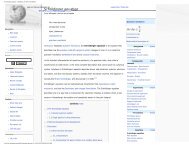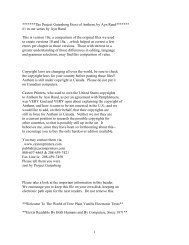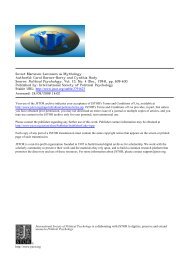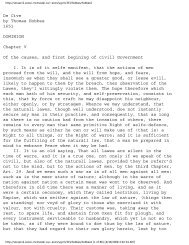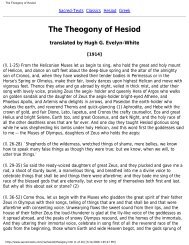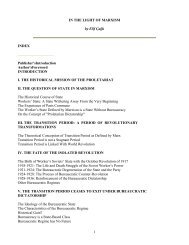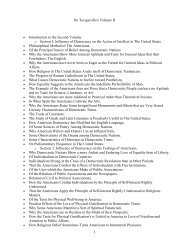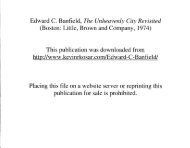Project Gutenberg Etext of The Large Catechism, by Martin Luther
Project Gutenberg Etext of The Large Catechism, by Martin Luther
Project Gutenberg Etext of The Large Catechism, by Martin Luther
You also want an ePaper? Increase the reach of your titles
YUMPU automatically turns print PDFs into web optimized ePapers that Google loves.
Those, then, are called slanderers who are not content with knowing a<br />
thing, but proceed to assume jurisdiction, and when they know a slight<br />
<strong>of</strong>fense <strong>of</strong> another, carry it into every corner, and are delighted and<br />
tickled that they can stir up another's displeasure [baseness], as<br />
swine roll themselves in the dirt and root in it with the snout. This<br />
is nothing else than meddling with the judgment and <strong>of</strong>fice <strong>of</strong> God, and<br />
pronouncing sentence and punishment with the most severe verdict. For<br />
no judge can punish to a higher degree nor go farther than to say: "He<br />
is a thief, a murderer, a traitor," etc. <strong>The</strong>refore, whoever presumes to<br />
say the same <strong>of</strong> his neighbor goes just as far as the emperor and all<br />
governments. For although you do not wield the sword, you employ your<br />
poisonous tongue to the shame and hurt <strong>of</strong> your neighbor.<br />
God therefore would have it prohibited that any one speak evil <strong>of</strong><br />
another even though he be guilty, and the latter know it right well;<br />
much less if he do not know it, and have it only from hearsay. But you<br />
say: Shall I not say it if it be the truth Answer: Why do you not make<br />
accusation to regular judges Ah, I cannot prove it publicly, and hence<br />
I might be silenced and turned away in a harsh manner [incur the<br />
penalty <strong>of</strong> a false accusation]. "Ah, indeed, do you smell the roast"<br />
If you do not trust yourself to stand before the proper authorities and<br />
to make answer, then hold your tongue. But if you know it, know it for<br />
yourself and not for another. For if you tell it to others, although it<br />
be true, you will appear as a liar, because you cannot prove it, and<br />
you are, besides acting like a knave. For we ought never to deprive any<br />
one <strong>of</strong> his honor or good name unless it be first taken away from him<br />
publicly.<br />
False witness, then, is everything which cannot be properly proved.<br />
<strong>The</strong>refore, what is not manifest upon sufficient evidence no one shall<br />
make public or declare for truth; and in short, whatever is secret<br />
should be allowed to remain secret, or, at any rate, should be secretly<br />
reproved, as we shall hear. <strong>The</strong>refore, if you encounter an idle tongue<br />
which betrays and slanders some one, contradict such a one promptly to<br />
his face, that he may blush thus many a one will hold his tongue who<br />
else would bring some poor man into bad repute from which he would not<br />
easily extricate himself. For honor and a good name are easily taken<br />
away, but not easily restored.<br />
Thus you see that it is summarily forbidden to speak any evil <strong>of</strong> our<br />
neighbor, however the civil government, preachers, father and mother<br />
excepted, on the understanding that this commandment does not allow<br />
evil to go unpunished. Now, as according to the Fifth Commandment no<br />
one is to be injured in body, and yet Master Hannes [the executioner]<br />
is excepted, who <strong>by</strong> virtue <strong>of</strong> his <strong>of</strong>fice does his neighbor no good, but<br />
52



